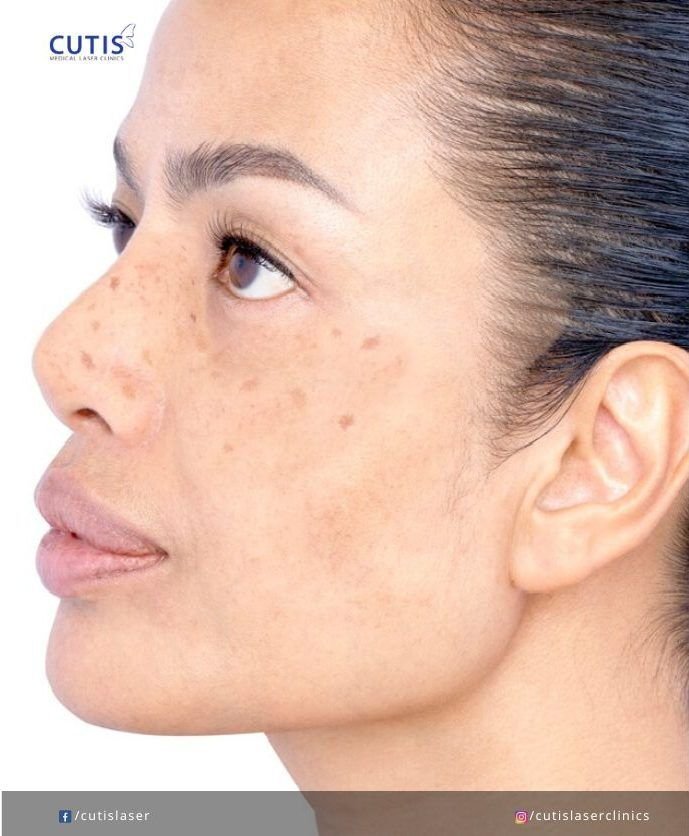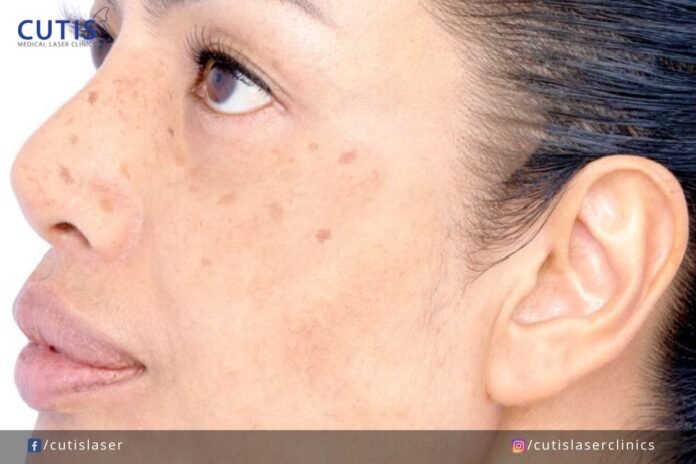Dark spots or pigmentation are among the top skin concerns that are difficult to treat. And while many products and treatments claim to fade and lighten them, the results often fall short of their promise. There are also cases where the spots do lighten, but then reappear after a few weeks or months.

It is definitely frustrating to try various pigmentation treatments only to see minimal to no results. But why does this happen? What can you do to prevent dark spots from recurring after pigmentation treatment? Our aesthetic clinic in Singapore explores the common mistakes when treating pigmentation and what you can do to effectively lighten dark spots.
But as more and more people continue to trust botulinum toxin for wrinkle management, incidents involving fake doses and unlicensed providers have also increased. Recently in the United States, counterfeit versions of a popular brand have been found across multiple states in the country.
1. Using harsh/aggressive treatments
In an effort to get immediate results, some fall prey to aggressive treatments such as over-exfoliation and strong chemical peels. And although exfoliation does wonders in promoting skin renewal and brightening your skin, doing it too much can irritate the skin, compromise the skin barrier, and even darken existing pigmentation.
The same can also be true for chemical peels. While they improve uneven skin color and overall skin appearance, doing it the wrong way or choosing the wrong type of peel can lead to unwanted side effects like changes in skin color. This is why it is crucial to make sure that the peel is right for your pigmentation and is performed by a professional.
2. Not being consistent with your routine
Getting results with any type of skincare, including pigmentation treatments, doesn’t happen overnight. With many topical treatments such as vitamin C and niacinamide, it may take several weeks to a few months before you can see noticeable improvements. Not keeping up with your routine can only delay results or hinder progress.
It does take time to make something into a habit, but the rewards can be worth it. It also gets easier over time, as applying skincare will become like second nature to you. It is also important to note a consistent skincare regimen helps support a professional hyperpigmentation treatment (pigmentation treatment).
For further reading: How to Stay Consistent with Your Skincare Routine
3. Not knowing or understanding the type of hyperpigmentation you have
Not all dark spots are created equal. Some respond to gentle treatments such as topical creams and a regular skincare routine, while others will require a combination of treatments or in-office procedures.
Knowing what type of pigmentation you have (with the help of a doctor) can determine the most suitable method that will give you your desired outcome. Some of the most common types of pigmentation include:
- Age spots – or sun spots appear as small, flat, discolored marks. They show up in areas that receive a lot of sun exposure.
- Freckles – are small, pigmented spots that can be light or dark brown, black, or red. They are common in kids, especially those with fair skin and red hair, but can also develop due to sun exposure.
- Melasma – is also referred to as “the mask of pregnancy” because they are more common among pregnant women. It appears as brownish or grayish patches on the face.
- Post-inflammatory hyperpigmentation (PIH) – appears after the healing of a wound, inflammation, or skin trauma. It shows up as flat, discolored marks that can be pink, brown, or red in color.
4. Solely relying on topical treatments
Topical or off-the-counter treatments can help fade some dark spots, but they have their limitations. If you have tried several pigmentation treatments for weeks or months but see minimal to no improvement, it is best to see a professional. Here at Cutis, we have several pigmentation treatments that can tackle different types of hyperpigmentation.
Some of our pigmentation treatments in Singapore include:
- Dermamelan – a medical depigmenting treatment that can lighten visible pigmentation, as well as regulate melanin overproduction to prevent the reformation of spots. It features an at-home skincare regimen using Dermamelan skincare products to achieve lasting results and prevent pigmentation reappearance.
- VI Peel Precision Plus – a medium-depth peel designed for UV-induced pigmentation, PIH, melasma, and sun damage.
- Meso-Peel – combines Dermapen 4 microneedling and Über Pro Peel, a professional peel that is designed to enhance skin needling procedures. This refreshes the skin’s top layer to improve skin tone and texture.
- PicoLaser – uses a picosecond laser system to improve epidermal lesions, age spots, PIH, acne scars, and skin rejuvenation.
- Limelight PhotoFacial – uses IPL to treat or improve brown spots, sun damage, enlarged pores, facial redness and tiny veins, fine lines, wrinkles, and uneven skin texture.
- Laser skin resurfacing – resurfaces the skin’s damaged layers and generates collagen growth. It can improve or treat age spots, sun damaged skin, acne marks and scars, and fine lines and wrinkles.
A consultation with our aesthetic doctor can help determine the type of pigmentation you have as well as the most suitable treatment. They may also recommend a skincare regimen to follow or combination treatments to achieve your desired results.
5. Neglecting proper sun protection
Ultraviolet (UV) rays from the sun are one of the skin’s worst enemies. Apart from causing skin damage and accelerating skin aging, it can also contribute to or worsen pigmentation. This is why sun protection is particularly important after undergoing a skin pigmentation treatment to prevent further darkening.
Make sure to apply broad-spectrum sunscreen with SPF 30 or higher daily. And when you’re out in the sun, don’t forget to apply every two hours or after swimming, sweating, or toweling off. It is also advisable to limit sun exposure during peak hours, seek shade when you’re outdoors, or wear protective clothing, sunglasses, and a wide-brimmed hat.
Book a consultation
Are you thinking of getting a botulinum toxin treatment or other cosmetic injectable? We at Cutis Medical Laser Clinics in Singapore have aesthetic doctors who administer the treatment. We also use authentic products and are transparent with our prices. Contact us today to learn more or schedule a consultation.
To share, click on the Icon.
